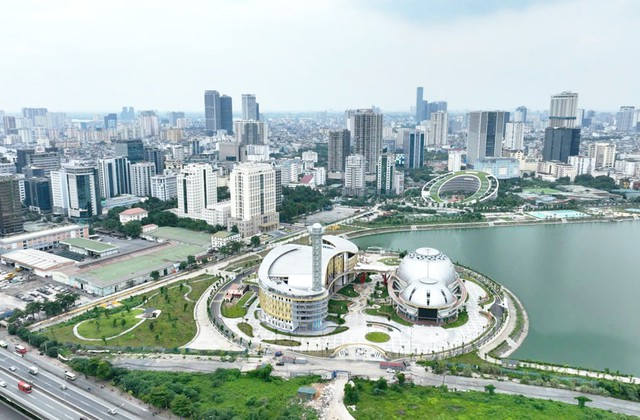Ha Noi to pioneer in breakthrough development
VGP - Ha Noi is pioneering the pilot implementation of new mechanisms and policies, with a focus on developing science and technology, innovation, digital transformation, education and training, and healthcare as well as promoting the development of private economy.

This is one of major development orientations of the capital city for the 2025–2030 term, which will be brought to discussion at the 18th Congress of the Ha Noi Party Organization for the 2025-2030 term, slated for October 15-17.
The city targets to focus on three key breakthroughs, including (i) building and completing the institutional framework development; (ii) developing, utilizing, and effectively leveraging high-quality human resources while attracting talents; and (iii) developing a modern, smart, and well-connected infrastructure system.
Notably, Ha Noi will take the lead in ensuring social security and welfare, providing regular health check-ups or free annual medical screenings for all residents and gradually moving toward free healthcare services for all citizens.
The city aims to make the private economy one of its most important driving forces, with around 300,000 active enterprises by 2030; become a leading hub for science and technology on par with other major cities in Asia and the world.
Besides, Ha Noi will boost investment in transport infrastructure, giving priority to projects that enhance connectivity between key growth areas and development corridors of the capital, as well as interregional and intraregional networks and gateway zones. Priority will be given to routes linking the inner city with Noi Bai Airport, Gia Binh Airport (in Bac Ninh Province), and the Hoa Lac Hi-Tech Park.
On urban development, Ha Noi will develop urban areas following the Transit-Oriented Development (TOD) model, establishing smart urban chains that connect the central area with the northern part of the Red River and the western areas with a view to creating new development spaces and growth poles for the capital in the future.
During the 2021–2025 period, Ha Noi promptly provided support to localities, with a total funding of over VND1.353 trillion (US$51.4 million), to carry out social welfare programs, eliminate temporary and dilapidated housing, and build schools./.
